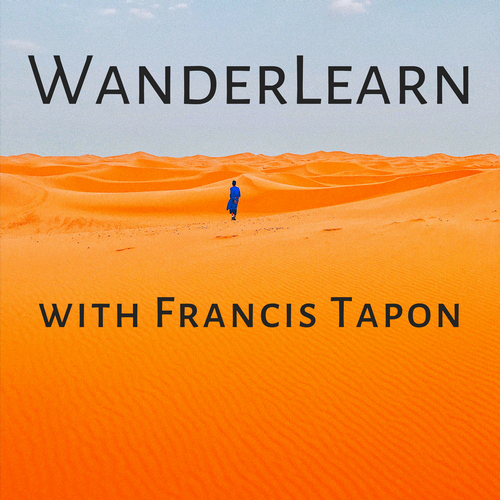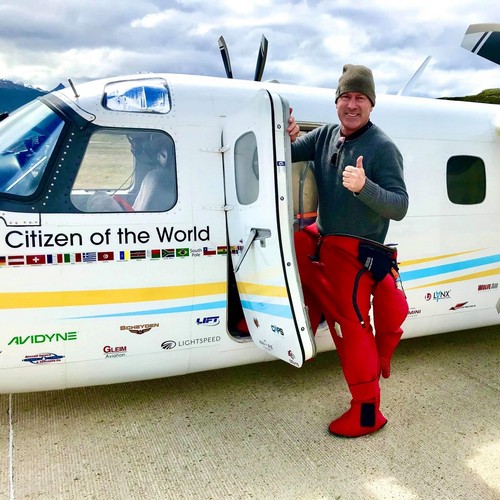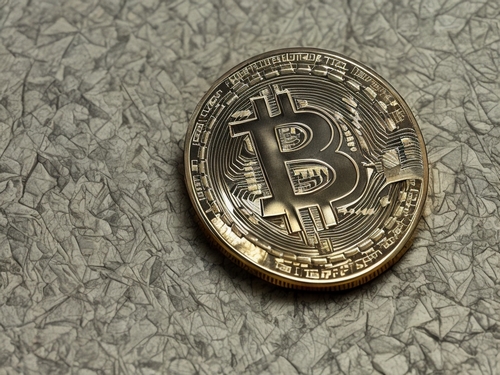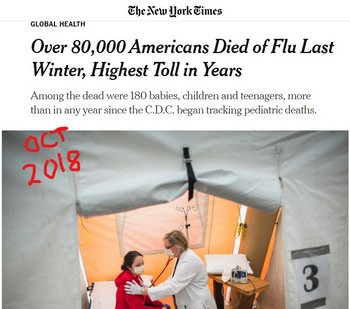WanderLearn Podcast

Check out the latest WanderLearn episodes!
Take a profound and distant journey. Call it:
- Deep Travel
- Immersive Travel
- Slow Travel
- Vagabonding
I will guide you to the intersection of travel, technology, and transformation.
The WanderLearn podcast will compel you to go beyond your comfort zone.
I wander all over the world and I share what I learn with you! In so doing, I hope you'll be inspired to do the same. Travel is the best university.
How to Subscribe to the WanderLearn Podcast
Search for "WanderLearn" in your favorite podcast player.
 If that fails:
If that fails:
This email address is being protected from spambots. You need JavaScript enabled to view it. the details of the podcast player that failed to find the show.- While I fix the problem, copy and paste this feed into your favorite podcast player:
https://wanderlearn.com/feed.xml
Although subscribing is essential, two other things help the WanderLearn podcast:
- Download every WanderLearn episode as I produce them! That's what helps get it noticed! It's better to have 100 subscribers and 100,000 downloads per episode than 10,000 subscribers and 100 downloads.
- Share the episodes! Word of mouth is gold!
Get My Infrequent Newsletter!
Don't just listen, watch!
Some WanderLearn episodes will also be videos, so be sure to subscribe to my YouTube Channel too.
I welcome comments and questions for each episode, which are listed below, from the most recent to the first one. I promise to answer any question from one of my Patrons. That's just one way to get rewarded for supporting the show!
Listen to the latest episodes below!
The show notes and comments for each episode are below

Flying to the South Pole and then to the North Pole in a small plane is extremely dangerous.
Robert DeLaurentis, who is known as the Zen Pilot, is on the brink of pulling this off.
I caught up with him when he was grounded in Spain during the Coronapocolypse.
By the time this airs, he should be in Sweden.
He plans to fly over 3 key places around the North Pole in July 2020.
Track his journey on his website.
Questions I asked the Zen Pilot

UPDATE: I wrote this article in early 2020 but updated a bit in mid-2024.
There is a US election, the World Cup, and the Olympics every four years. They don't all happen in the same year, but they each have a four-year cycle.
Today, there's another event that happens once every year that few talk about: the Bitcoin halving.
To celebrate, I'll give a simplified explanation of what the halving is and why it's significant.
Afterward, I will turn to a more fundamental question: why is Bitcoin (BTC) worth more than a dollar, and why do I keep talking about it given that I'm mostly known for my travels?

As of today (May 11, 2020), 80,000 Americans have died from COVID-19.
In 2018, 80,000 Americans died of the flu. It was a bad flu year.
It's fascinating how we look at death.
The Infection Fatality Rate of COVID-19 is about 10 times worse than influenza.
Therefore, if we didn't shelter in place, perhaps we would have lost 10x more Americans than the 2018 flu season, which would mean about 1 million deaths.
I've been called callous. But imagine if:
- We treated airline flights like rocket launches - and took 7 hours to go through all the safety checks.
- We set a 10 MPH speed limit nationwide.
- We mandated a nonstop shelter in place to stop the 5 million deaths from communicable diseases.
Such draconian measures would save thousands of lives. But would you be in favor of them?

I love Bitcoin. Nothing would make me happier than to see one of Plan B's optimistic stock-to-flow (S2F/STF) models become an accurate predictor of Bitcoin's price.
Up until now, there has been a non-spurious relationship between stock-to-flow and bitcoin's price. That's one reason it's such a compelling narrative.
I hope I'm wrong, but inevitably, BTC's stock-to-flow models will diverge dramatically from their predicted trendline. This article doesn't distinguish between the original S2F model and the latest S2FX model since they share a similar concept.
I am writing this while the world is counting down the hours to Bitcoin's third halving, which will occur on May 12, 2020. BTC costs nearly $9,000.
EDIT/UPDATE: Jump to my annual updates, where I reflect on how bitcoin's price has performed since writing this article, and I look ahead to 2024 and beyond. This article remains worth reading and relevant because the eight flaws still exist in Plan B's stock-to-flow model.

When I travel, I love to observe common ground in a sea of diversity.
The planet has over 100 currencies, but there's one thing that everyone agrees is money: gold.
So far, COVID-19 has killed 200,000, which has added to the 5 million deaths that we suffer from communicable diseases every year.
COVID-19 has also killed the global economy.
The travel industry has shut down.
The stock market is in tatters.
The prices of panic assets (gold and bitcoin) have soared.
Few are talking about a recession.
We're on the edge of a depression.
Therefore, we're taking a breaking from talking about travel and focusing on universal money: gold.
I talk with a renowned gold researcher, Jan Nieuwenhuijs.
We discuss:
- Whether gold's stock-to-flow ratio helps determine gold's price.
- What he thinks of bitcoin using the stock-to-flow to predict bitcoin's price.
- Why he bought bitcoin for $25 and why he sold it in 2017.
- What he thinks of asteroid mining.
- How do buy and store gold safely and effectively.

Last week, I got this email from Robert Hahn, whom I interviewed a few months ago on this podcast. He wrote:
Hey Francis! I listened to your most recent podcast with Rejoice. Afterwards I looked into investing in crypto a bit. I was wondering what your thoughts are on platforms for buying and storing the virtual currency. I was also interested in Nano (for its more environmentally conscious approach) and Monero (better privacy, but that may be a fault because it makes it a favorite for dark money). I'd be curious to hear why you chose Bitcoin...the assumption that widespread adoption will win the race?
Best Crypto Exchanges for US Citizens
For the best platform for buying cryptocurrency, I like Kraken.
The main problem with Kraken is that you can only fund your account with a bank wire transfer, which often costs $30-50. That only makes sense if you buy tens of thousands of crypto dollars.
Kraken used to offer free ACH bank transfers, but chargeback fees were killing them, so they stopped offering ACH.
Coinbase Coinbase also allows free ACH bank transfers. However, ACH transfers take about 2 weeks to complete on Coinbase, so they're bad if you're in a hurry.
CEX.io claims to offer ACH transfers, but when I tried to open an account with them, I found their interface and customer service abysmal. These Brits are not hungry for business.
Coinbase and other exchanges let you fund your account with a credit card (albeit with high fees).
Similarly, you can buy Bitcoin via Bitcoin ATMs, which are easy to find in major cities. However, once again, they usually slam you with high fees.
Where to store your crypto
For storage beyond what you're comfortable losing, Ledger is a great bet.
However, a Ledger costs $60-120, so that doesn't make sense if you're buying less than $1000.
In that case, use a smartphone app and back up your private keys (your 12-24 word seed phrase).
- Solving the Coronavirus Crisis
- Don't Hike Your Own Hike in 2020
- Thru-Hike To Escape the Coronapocolypse
- Don't Worry Too Much About COVID-19 and the Coronapocolypse
- Running 30 Marathons Before Turning 30 - Liz Warner
- Overlanding in 35 African countries in 3 years - Dan Grec
- How To Travel When You Have Limited Time
- Answering Kidnapping Podcast Criticisms
- Traveling To Find One's Ancestors
- Being Russian in Estonia
- How To Housesit When You Travel
- Backpacking With Zpacks - Matt Favero Shares The Vision
- How To Take A Sabbatical - DJ Didonna
- Traveling for 30+ Years - Mike Spencer Bown
- How Home Exchanges Work
- Alternatives to the Main El Camino de Santiago - Susan Alcorn
- Life Lessons From A Lion Tracker - Boyd Varty
- How to Avoid or Survive a Kidnapping
- Being A California Mayor: Burlingame's Donna Colson
- Eradicating Malaria in Sumbawa, Indonesia and Beyond
- How To Avoid and Survive an Avalanche
- Touring the World with Jessica Husson
- How Does A Colonial Ghost Haunt Africa's Borders?
- How To Travel Responsibly and Ethically
- Algerians Reveal Their Unseen Sides
- Humans Are Part Of Nature Despite What Environmentalists Say
- The Unseen Egypt with High-End Journeys
- AMA About the Book, Jail, and Languages
- Biking To Over 150 Countries with Patrick Martin Schroeder
- Using Basketball To Connect With Africans
- Biking The Americas From Canada To Patagonia
- Running An Egyptian Luxury Hotel With A Casino Is Tricky
- Debating Environmentalism
- AMA #2 - Bitcoin Q&A
- Unseen Sides of Tanzania
- Hiking to Muxia on El Camino de Santiago
- Traveling To Every Country With 3 Kids
- How Blockchains Will Disrupt Everything - Stephen P. Williams
- The Smartest Guy In Cameroon - Africa's Einstein
- 3 Young Egyptians In Luxor
- Lessons from the Hunting Debate
- Brittany Longoria Explains Her Controversial Leopard Photo
- Are Hunters Responsible for the Decline of Africa's Wildlife?
- How Volara is Bringing Voice Assistants to Hotels
- Gossamer Gear's Founder Glen Van Peski on Backpacking
- Is Libya Still A Shit Show? Frederick Wehrey answers
- A Persian Goes To Africa
- When To Use Vacasa
- Do Africans Still Practice Witchcraft Or Is That A Myth?
- How To Make A Successful Documentary Movie About Mountains
- How To Do Good & Make Money in Africa - The Anou
- How Does Nigeria Compare to Other African Countries?
- Rolf Potts on Vagabonding, Souvenirs, and Getting Drunk at 5
- When Will iinside Give Us Intelligent Airports?
- Whether You Love or Hate Travel Tours, Check Out TourRadar
- A 66-year-old Adventurer Shows How To Live A Meaningful Life
- Vacasa Is A Full-Service Solution If You Have A Second Home
- Acting CEO of Rome2Rio Makes Partnership With Lonely Planet
- 7 Predictions For 2019
- JoAnneh Nagler Explains How To Make Money Being An Artist
- Tim Butcher - Author of Two Books on Africa
- AMA: Repairing the Schism Between Locals and Tourists
- How To Create A Top Travel Podcast
- The Winding Tree Foundation Founders Answer Criticism
- How To Use, Not Abuse, Couchsurfing
- Amtrak Travel Tips for 2019
- What To Do If You Can't Afford to Travel
- How To Become an A-list Travel Blogger - Gary Arndt Explains
- You're Wrong If You Think You Don't Have Time to Exercise
- Why You Should Always Read Your Alumni Obituaries
- Winding Tree's Blockchain-Based Technology Impacts Travel
- What It Takes to Set a Speed Record or FKT on the AT & PCT
- How To Accumulate Fuck-You Money So You Can Do Anything
- Travis Sherry, The Jetto App, and Getting Travel Bargains
- Introducing A New Travel Show
- Rick Steves Interviews
Your comment will be deleted if:
- It doesn't add value. (So don't just say, "Nice post!")
- You use a fake name, like "Cheap Hotels."
- You embed a self-serving link in your comment.





